HISPANIC, FEMALE AND YOUNG:
AN ANTHOLOGY
EDITED BY PHYLLIS TASHLIK

This volume is made possible through support from the National Endowment for the Arts, a federal agency, the Andrew W. Mellon Foundation and the Lila Wallace-Readers Digest Fund.
Piata Books
An Imprint of
Arte Pblico Press
University of Houston
452 Cullen Performance Hall
Houston, Texas 77204-2004
Piata Books are full of surprises!
Cover design and illustration by Gladys Ramrez
Library of Congress Cataloging-in-Publication Data
Hispanic, female and young: an anthology / edited by Phyllis Tashlik.
p. cm.
ISBN-10: 1-55885-080-5
ISBN-13: 978-155885-080-4
1. American literatureHispanic American authors.
2. Hispanic American womenLiterary collections. 3. Hispanic American youthLiterary collections. 4. American literature20th century.
I. Tashlik, Phyllis
PS508.H57H56 1993
 The paper used in this publication meets the requirements of the American National Standard for Permanence of Paper for Printed Library Materials Z39.48-1984.
The paper used in this publication meets the requirements of the American National Standard for Permanence of Paper for Printed Library Materials Z39.48-1984.
Second Edition, 1995
Copyright 1994
Printed in the United States of America
6 7 8 9 0 1 2 3 4 5 14 13 12 11 10 9 8 7 6
For Las Mujeres
of Manhattan East
HISPANIC, FEMALE
AND YOUNG:
AN ANTHOLOGY
TABLE OF CONTENTS
|
|---|
JUDITH ORTIZ COFER |
LUZ OTERO |
LORNA DEE CERVANTES |
SARA RODRGUEZ |
MONIQUE RUBIO |
MARA PERSONS |
SARA RODRGUEZ |
JUDITH ORTIZ COFER |
CAROLINA HOSPITAL |
LORNA DEE CERVANTES |
JUDITH ORTIZ COFER |
CARMEN M. PURSIFULL |
ROSA MARA ARENAS |
JEANETTE TIBURCIO |
LISTENING TO MONGO SANTAMARA
CALLING THE SPIRITS FROM BUFFALO | OLGA MENDELL |
ROBERTA FERNNDEZ |
MARA ELENA LLANO |
JUDITH ORTIZ COFER |
JUDITH ORTIZ COFER |
PAT MORA |
ROSA MARA ARENAS |
ROSA ELENA YZQUIERDO |
CAROLINA HOSPITAL |
SANDRA ORTA |
DENISE ALCAL |
ROSA ELENA YZQUIERDO |
EVANGELINA VIGIL-PIN |
ENIKE SMITH |
NICHOLASA MOHR |
LORNA DEE CERVANTES |
EVANGELINA VIGIL-PIN |
NICHOLASA MOHR |
MARGARITA ENGLE |
A DAY IN THE LIFE OF ME:
SEPTEMBER 29, 1988 | LESLIE RIVERA |
LESLIE RIVERA |
LESLIE RIVERA |
JUDITH ORTIZ COFER |
AMINA SUSAN ALI |
AMINA SUSAN ALI |
INEZ SANTANA |
MICHELLE CALERO |
IVY COLOMBA |
EDNA ROBLES |
NEREIDA ROMN |
NEREIDA ROMN |
THAT SOMETHING SPECIAL:
DANCING WITH THE REPERTORY DANCE
COMPANY OF HARLEM | LESLIE RIVERA |
JUDITH ORTIZ COFER |
LORNA DEE CERVANTES |
JUDITH ORTIZ COFER |
JUDITH ORTIZ COFER |
AMINA MUOZ |
CRISTINA GONZLEZ |
ELSA ZAMBOSCO |
JUDITH ORTIZ COFER |
EDNA ROBLES |
LUZ OTERO |
SHANIQUE GARCA |
CARMEN MARTIN |
NICHOLASA MOHR |
EDNA ROBLES |
MARA PERSONS |
LORNA DEE CERVANTES |
INEZ SANTANA |
DJASSI JOHNSON, |
LUZ OTERO, |
MILLIE RIVERA, |
SARA RODRGUEZ, |
SIMEKO WATKINS |
DENISE ALCAL |
INTERVIEW WITH INGRID RAMOS:
A FRIEND OF EAST HARLEM | SHANIQUE GARCA, ILEANA MORALES, |
MALIKA MOSELY |
ENIKE SMITH, |
WITH LAURA GONZLEZ, |
STEPHANIE METZGER, |
LESLIE RIVERA, |
NEREIDA ROMN |
INTERVIEW WITH OLGA MNDEZ:
THE SENATOR FROM EL BARRIO | SHANIQUE GARCA, LAURA GONZLEZ, |
ILEANA MORALES, |
MALIKA MOSELY, |
ENIKE SMITH |
INTERVIEW WITH NICHOLASA MOHR:
HOLD FAST TO YOUR DREAMS | KIM BAEZ, MICHELLE CALERO, |
LUZ OTERO, |
MONIQUE RUBIO, |
JANEL SHEPARD |
INTERVIEW WITH TINA RAMREZ:
FOUNDER OF BALLET HISPNICO | IVY COLOMBA, MILLIE RIVERA, |
SARA RODRGUEZ, |
MONIQUE RUBIO, |
JANEL SHEPARD, |
SIMEKO WATKINS, |
GUADALUPE ZRATE |
INTRODUCTION
We began in a circle. Twelve eighth-grade girls met with me, their teacher, on a sunny September afternoon, in an ancient red brick public schoolhouse on East 99th Street in Spanish Harlem (El Barrio). We were pioneering an elective named Las Mujeres Hispanas, a class designed to introduce Hispanic teenage girls to Hispanic female literature and to their own potential as writers.
Slowly, tentatively, they began to share their life stories. Sara spoke of being half-Mexican and Monique of being half-Cuban. Others offered tales of family journeys to the United States from Puerto Rico, Colombia, Panama. Our group represented a mosaic of cultures, histories, and backgrounds. I recall the words of Olga Mndez, the state senator the girls would later interview. She cautioned them that all people should know and be proud of their roots, that simply being called Hispanic isnt sufficient when your background is Puerto Rican, Dominican, or Mexican.
For my young mujeres, this classroom experience was definitely strange. It was probably the first time they had been asked to share in school their perception of themselves as young women and Latinas. There we were, a huddled group of females discussing our lives, while eighth-grade boys gathered outside the closed classroom door. We could see their heads bobbing up and down as they sought the girls attention and organized a mild protest against an all-girls class in our small, alternative school. The class may not have seemed right to the boys, but the girls saw it as an honor and a personal mission. As they later wrote in the introduction to the first anthology of their written work:
A class like Las Mujeres is something that helps you learn about yourself and others and find compassion in your heart to appreciate other cultures while finding in yourself who you really are. Las Mujeres helped us to understand ourselves in a better way. To take charge of our lives. To look at the world in a better way.


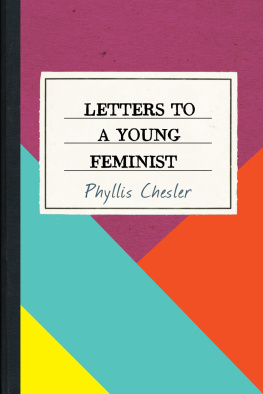
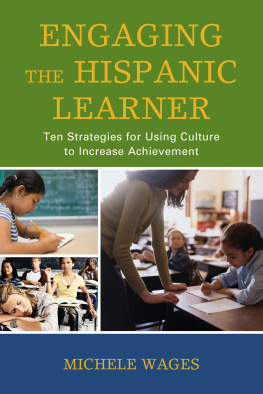
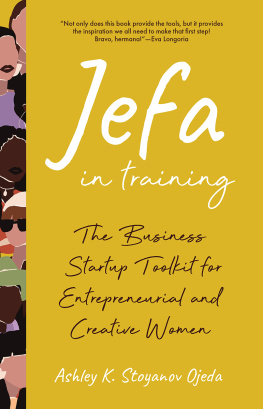
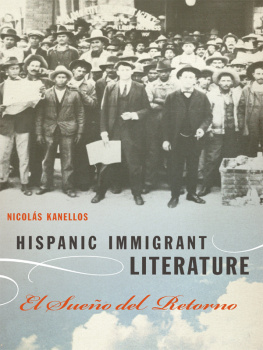
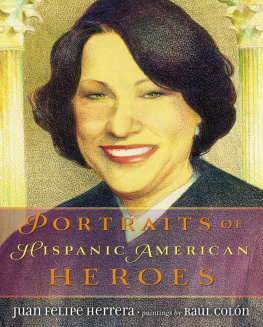

 The paper used in this publication meets the requirements of the American National Standard for Permanence of Paper for Printed Library Materials Z39.48-1984.
The paper used in this publication meets the requirements of the American National Standard for Permanence of Paper for Printed Library Materials Z39.48-1984.